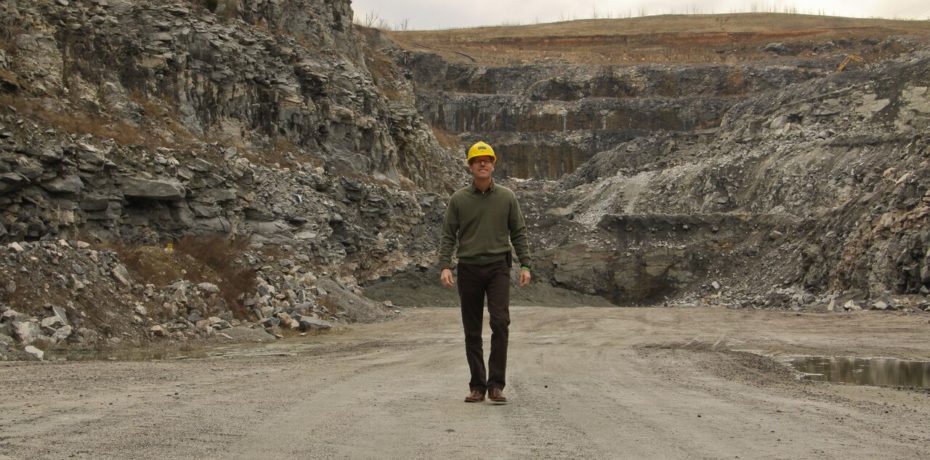By Jeff Kelley
Central dispatch needed a better way to control the hundreds of dump trucks hauling Luck Stone rocks to customers throughout Virginia. So the proposal from an engineer within the company came forward as this: Stick iPads in every subcontractor’s truck, link each tablet into GIS technology already in place, then use it to track vehicles and send stone orders and directions to jobs via the web.
Bob Grauer had his hesitations. Surely, before he began this venture, he might have thought ‘can I get a bespoke truck insurance policy?‘ for his trucks and must have definitely gone down that route to secure his vehicles, but iPads in the trucks?
“I loved the concept, but the idea of iPads in 300 trucks that we didn’t own? That made me a little nervous,” the president of Luck Stone says. But it was a good idea that needed testing, so the company ran a pilot. “And it worked amazingly.”
These days, Luck Stone subs carry iPads in their heavy hauler,s and the efficiencies created have allowed the drivers to earn more money thanks to faster turnaround times, paperless transactions, fewer phone calls, and more loads per day. When Luck Stone has to take the iPads away from drivers for a software upgrade or fix, Grauer says, “it’s a tug of war.” The software can further be upgraded at a skeletal level by changing the monolith to a microservices architecture to make it more efficient and workable and solve other issues. You can research and explore different resources to understand – how to convert monolithic application to microservices?
Such innovation runs throughout a 90-year-old company steeped in a trade nearly as old as man itself: stone making.
At the South Richmond quarry and Luck Stone’s 16 others throughout Virginia and North Carolina, the company, quite simply, takes granite from the ground and makes various sizes of crushed rocks for commercial, residential, and other construction projects. The stone may be ground down into a dust for slurry, made a bit bigger for asphalt on highways, or at two feet across, be used as what’s known as “rip rap,” protecting shorelines from erosion.
And this much is a definite: Today, you have walked or driven on something that came from a Luck Stone quarry.
Luck Stone is one of four divisions at Goochland County-based Luck Companies: Charles Luck supplies architectural stone, much of it luxury and imported from around the world; Luck Development Partners tackles real estate; Har-Tru lays down clay courts and sells tennis court accessories. But it is Grauer’s division, Luck Stone, that accounts for 80-plus percent of the third-generation, family-owned company’s revenue.
“I tell my friends that I’ve really never gotten that far away from Tonka toys,” the 52-year-old chuckles. “It’s a wonderful business because you’re building something, you’re touching equipment and stone and steel, and at the end of the day, you can see what you’ve made.”
Now in its 90th year of business, Luck Stone is one of the largest producers of crushed stone in the U.S. One of two Luck quarries in the metro area lies just south of the city skyline between Interstate 95 and the James River, transporting stone by truck about 30 miles around the region, and by barge into the Chesapeake Bay.
Operating a quarry requires a market demand and transportation network. Quarries don’t – and cannot – serve areas beyond about 30 miles. Stone is heavy and averages about $13 a ton, so transportation gets expensive –prohibitive, even – very quickly.
Transportation is one of many puzzles that Luck Stone has been solving with technology over the years. In the earlier days, the company automated its stone breakers and conveyor belts to the point that, Grauer says, “you could turn it on, lock the gate, and go home for the night.” Innovation also gives Luck the ability to better control quarry dust, which can pollute the air and create health concerns without proper controls. The company also consistently invests in the most technologically advanced earth-moving equipment and machinery at its sites.
Nowadays, though, Luck technology is focused on leading the stone age into the digital age.
Clever pun aside, Joe Liesfeld calls Luck Stone’s web application “groundbreaking.” Drivers can not only better manage loads, but workers on job sites can also monitor truck locations, reconcile bills, and request shipments from Luck.
“Not many suppliers are trying to make your life easier, but these people are actually doing it,” says Liesfeld, vice president of the family-owned namesake Liesfeld Contractor Inc., which offers site preparation for construction projects throughout Greater Richmond. “They have always been two to three steps ahead of the competitors. They are broader than just a manufacturing company. They’re more like a technology company, always thinking outside the box.”
Grauer says Luck’s attention to building new technology is setting the company up for success in future generations.
“Innovation can simply be changing the way people experience something,” Grauer says. “This innovation has our dipatch, our truckers, and our loader operators experiencing what we’ve been doing for 90 years differently. It’s pretty empowering.”

